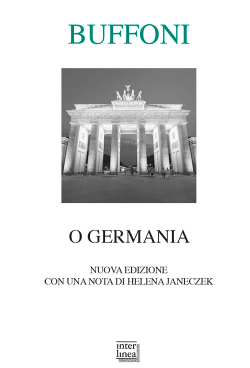Poemata Editorial
Using verses like keys to open their own Wunderkammern, the poets selected for this issue tell their own experience of wonder. In his elegant poem, filled with affection, Paolo Polvani deals with the experience of music, exploring through images its ineffable beauty and the rapture involving the whole body. Through the distorting lens of dream, of imagination or of an artificial stupefaction, Rita Stanzione’s rhapsodic and chiselled lines show a landscape that naturally turns into a work by the engraver of impossible spaces. And in a sense, Escher is also recalled by Giovanna Olivari’s seascape, where a fairy hand moves the line of the horizon and let the ships fly, instilling in the observer ashore the desire for a new perspective from which to look at him/herself. In Gabriella Musetti’s poem, wonder is aroused instead by a seemingly ordinary daily scene –a tender and melancholy encounter– where emotion is born out of human contact, the coming close of destinies, which for once can be experienced as slowly as the train crosses a white and blurred countryside.
Wedding bands
Gabriella Musetti
She wears two wedding bands on her ring finger
a sign of widowhood
a white curly head
and gentle eyes She talks peacefully
her sister says – she doesn’t know what to do –
because she is not here
she lost her way a long time ago in the bags
of fate which spares nothing
mourning and pain
And softly she keeps on
asking where we are
while the train slowly rattles in the
mist that wraps the entire countryside
In the pale white of the outlines
objects flood and fly
Fata Morgana by the Sea
Giovanna Olivari
Fata Morgana,
you have moved the horizon
this morning.
Down from the sky
you silent
drew the straight
regular
thread
till the middle of the sea.
From the shore
I have seen
white ships fly
that believed they were sailing.
From the shore
I screamed
I gesticulated.
Nobody listening to me.
And they kept on flying
sure that they were sailing
as usual
as you normally do on the sea.
Fata Morgana,
when you come to move my horizon,
do not leave me inside myself.
Take me by the hand,
bring me to my shore.
From there only I will know it.
And enjoy it.
The 18th Minute
Paolo Polvani
I am waiting for the 18th minute of the Titan symphony, Mister
Gustav Mahler, there the tumult shoots up, it gets
over-excited, it unsaddles, there the impetus of the hands,
there the body goes along with a wind, a fury, the invisible
assault. Mister Gustav Mahler I can’t tell
beauty. There are seasons. There are deserts
waiting for forgiveness, the endless waters that yield us
as better people, there are examples, pomegranates, the blue of breath,
there are words, the doodles of the birds, and there is
that 18th minute of the symphony, on which
I love to climb, stand up, lean forward, fall.
From Mistral Baskets
Rita Stanzione
Honey tips
sprout from the ground
mistral baskets go and pick up
sailing whispers going up the hills
Cloudy smells, cirrus-roots
for little moving and trilling birds;
crenelated mouths
tell the same colourful
fairy-tale
Stunned Senses
–how much the goddess Morphine likes
this word!
Buds of fantasy open springs;
with no corollas on Escher paper
and yet he copied
a spring (of his)
in black and white
O GERMANIA
The colour of the last war in Europe
is not the red of blood,
it’s the pale orange
of the odorless complexion
That can shed no more
than a couple of tears.
“Carnivorous sheep” is chancellor Adenauer’s terrible definition of German people that echoes in our mind as we read the book that collects Franco Buffoni’s writings in prose and verse about the “land that lies above his head”. A country that is very important for him because of his family history (his father spent two years in a concentration camp after refusing to endorse for the Italian Social Republic) and his sojourns in the Federal Republic of Germany during his youth. A love-hate relationship, as he calls it, that allows us to interpret the title’s vocative as an outburst of both scorn and affection, the latter reverberating in the dedications at the beginning of each section. Therefore Adenauer, Fischer, Heine, Benjamin, Goethe and Gerlich embody the good side of Germany and become virtual interlocutors who care about their country and the consequences of its behaviour on Europe. Made up of short prose writings that lucidly depict the situation of the European Community today, and poems that constantly fluctuate between the historical memory and the present situation, the book shows us the rise of the “crouched monster” that, in Fischer’s words, is likely to bury “the whole Europe for the third time in a century”.
Page after page, we are seized by anxiety as we understand that the German nature, responsible for countless losses in the last century, has stayed the same. Therefore rows of “shaved prisoners with their fingers intertwined on the head” become the “dead wearing coats”, the contemporary “sad slaves”, unhappy and without rights, crushed by the economical policies established by Germany. On the other side we see the German herds, with their preciseness, their scientific organization, the vocation for obedience. That same obedience that, after fifty years, prevents them from fully re-evaluate a person like Paul Grüninger, who broke the law in order to save many Jews from concentration camps. “It is not acceptable” stated the Federal spokesman on the day of his posthumous rehabilitation “to have to act against the laws of the state in order to listen to one’s own conscience”. Words from which it is not easy to break free, like many others in this book that employs the best tools of poetry – the incisiveness of images and situations, the clarity of words – to stimulate a complex political-anthropological reflexion and at the same time arouse feelings that range from tenderness to emotion, to anguish. Without drifting into indignation and tirade, all is offered in a calm way and paying special attention to the conclusion of each poem, in order to ask us questions that make us think on our own. A consistent and moving book, a great example of political poetry.

